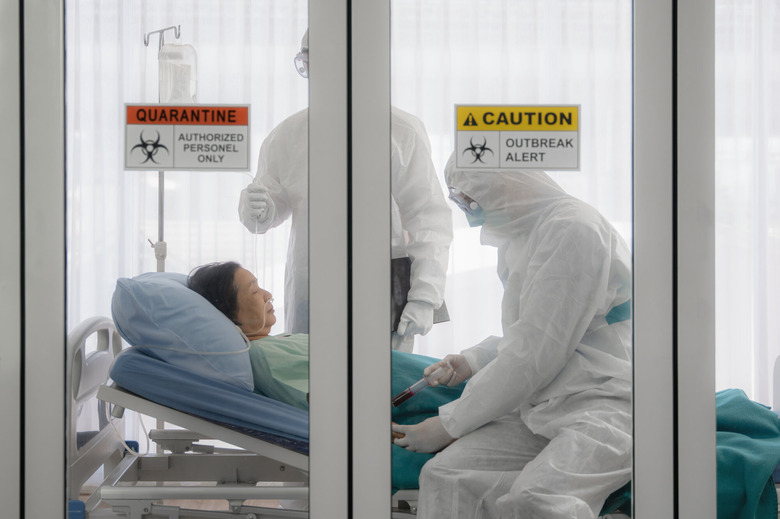Doctors Claim That CBD Could Speed Up COVID-19 Recovery
- Doctors from Austria have treated COVID-19 patients in the ICU with cannabidiol, also known as CBD, finding that the marijuana-derived compound can hasten recovery.
- Patients who received CBD cleared the virus faster than those who were on other medications. Doctors suspect the drug modulates inflammation, boosts the immune system, and helps restore oxygen levels.
- Despite the benefits of CBD use in coronavirus therapy, more research is required. Experts warn against at-home use of marijuana or CBD for treating COVID-19 without medical supervision.
Several COVID-19 vaccine candidates have completed clinical trials, showing efficacy and safety at preventing coronavirus complications and deaths. Becoming infected is still possible for those who are immunized, but the vaccines will minimize the chances of life-threatening COVID-19 complications. These vaccines have received emergency authorization in several regions, and more are about to pass through the same regulatory hurdles. But vaccines aren't enough to prevent deaths. Hundreds of thousands of people get infected each day, and the vaccine won't help them while fighting off the illness. More people will continue to be infected until the world reaches herd immunity, and that process could take years in some regions where vaccinations haven't even started.
The good news is that researchers haven't stopped looking for better COVID-19 therapies to save more lives, with breakthroughs revealed regularly. The latest such development comes from Austria, where doctors have been treating ICU patients with a cannabis compound that has beneficial effects across a range of medical issues. It turns out that cannabidiol (CBD), might help patients experiencing severe illness recover faster than other currently available therapies. If this data can be verified further, doctors might have one more therapy solution for patients experiencing COVID-19 complications.
"We administered CBD to 50 patients and observed that the infection levels disappeared more quickly," Dr. Rudolf Likar told EFE. The scientist is the head of the Department of Anesthesiology and Intensive Medicine at Klagenfurt Hospital.
Likar's team started the ICU patients on 200 mg of CBD and then upped the dosage to 300mg. The regimen lasted for three weeks, with the doctors finding that the patients cleared the virus faster than a group who received other drugs. The Klagenfurt clinic is the only one in Austria to treat COVID-19 patients with cannabidiol.
The doctor said that CBD could strengthen the immune system and has anti-inflammatory properties. The latter might be a vital effect of the compound. The goal of COVID-19 therapy is to prevent an exacerbated immune response, which can lead to other complications and deaths. Likar also said that CBD helps restore oxygen levels, and the lungs of COVID-19 patients who are already experiencing pneumonia would recover faster.
The doctor also said that another advantage of CBD in COVID-19 is that it has no side effects for patients, and it's not contraindicated for any other medications. But the doctor was also cautious to clarify that the effectiveness of CBD in coronavirus therapy is not fully understood. "There is still a lot to study," he said, adding that the early conclusions are good, "but we need more studies and more data."
It's unclear how or if CBD impacts mortality. These early findings seem to indicate that all of the patients who received the cannabis-derived substance have survived COVID-19.
The EFE report points out that other studies from the UK, Canada, and Israel have pointed out the beneficial effects of CBC therapy in COVID-19. Israel is in the process of approving the drug as part of COVID-19 treatment, Likar said.
CBD has also shown promise in other medical conditions, including Parkinson's, epilepsy, chronic pain, cancer, and mental disorders like anxiety and depression. CBD does not have the same intoxicating effects as smoking marijuana.
Experts warn that consuming cannabidiol without medical supervision or smoking marijuana at home isn't recommended to treat COVID-19, despite this initial good news.
